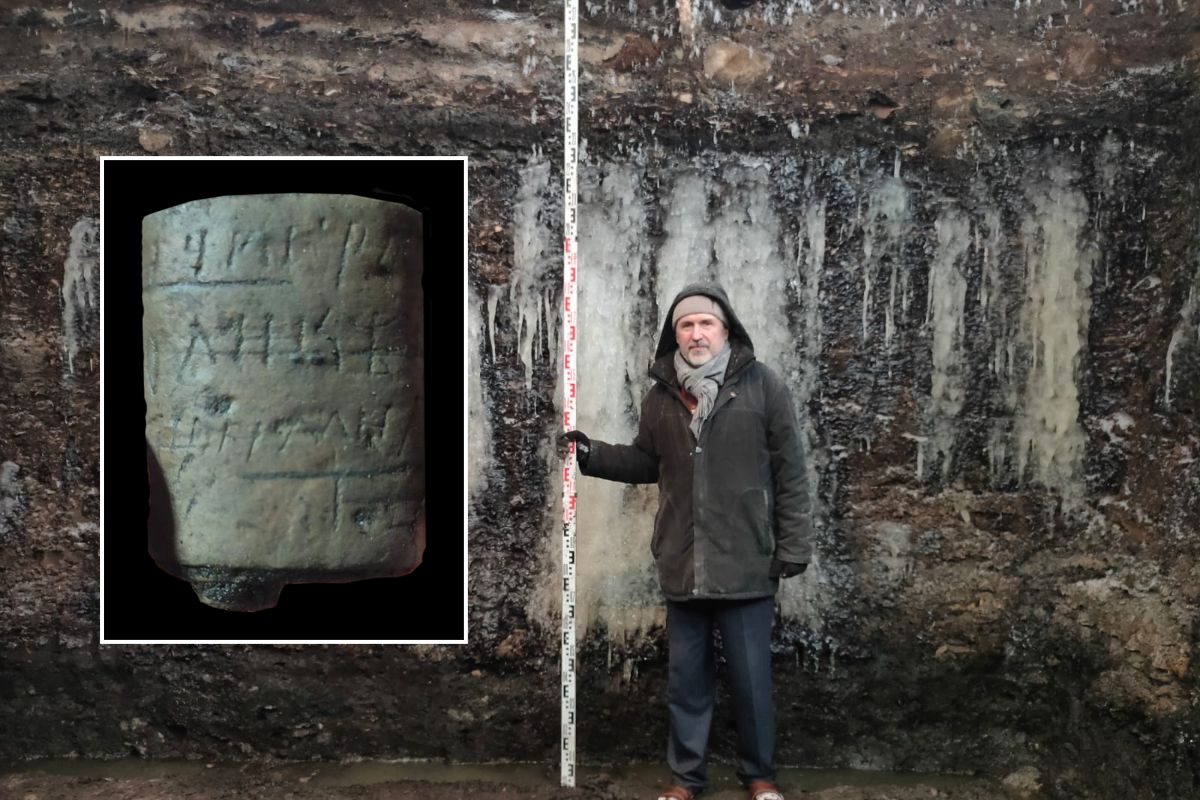Archaeologists from the Institute of Archaeology of the Russian Academy of Sciences have found a complete birch bark letter in the historic centre of Veliky Novgorod, Russia.
Although their existence was mentioned in some old East Slavic manuscripts, the discovery of birch bark letters has significantly changed the understanding of the cultural level and language spoken by the East Slavs.
The researchers were excavating the remains of a wealthy estate dating from between the 12th to 15th century AD, containing household items such as fragments of leather shoes, ceramic vessels, wooden dishes, as well as sinkers and floats for fishing nets.
The most notable finds include a 13th century seal depicting St John the Theologian and St Lazarus of Bethany, in addition to four lead seals from the 12th century.
Whilst excavating the cultural layer from the 12th century, a whole birch bark letter marked 1144 was uncovered in which the author sends a question to a certain Dobroshu about the amount to be paid for the provision of services and requests a response to his letter.
The letter was preserved in the Novgorod cultural layer (up to eight meters, or 25 feet deep) thanks to the heavy waterlogged clay soil which prevents the access of oxygen.
Near to the estate site, the team also excavated several large warehouses that stood along the banks of the Volkhov river, where they recovered fragments of boats and iron staples for the repair of river vessels, ceramic pots for tar, fragments of leather shoes and a lead seal of the Novgorod tiun of Peter, who lived in the 14th century.
Header Image Credit : Institute of Archaeology RAS





